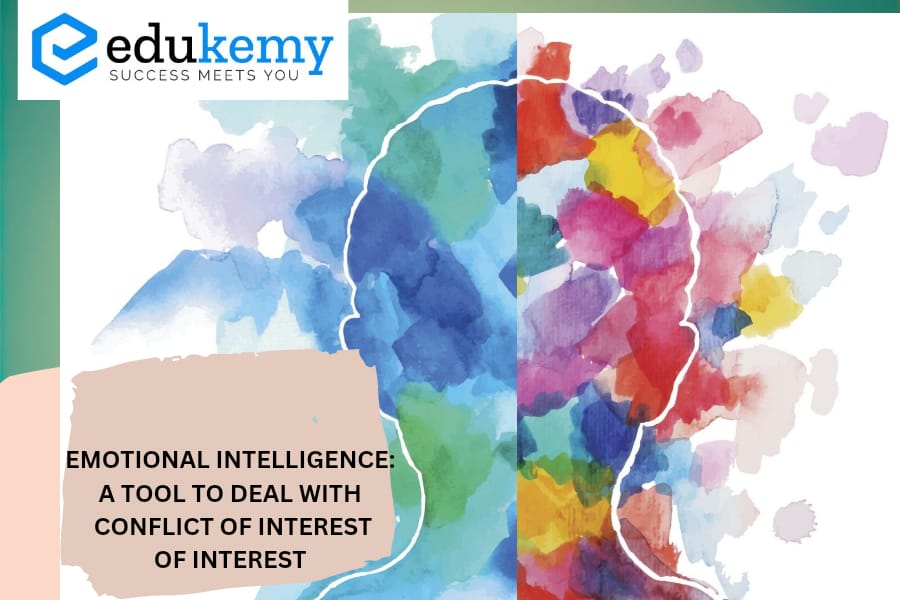
Emotional intelligence is indeed a powerful tool for managing conflicts of interest. Here’s how it can be applied:
Self-awareness:
Recognizing your own emotions and understanding how they influence your thoughts and actions is crucial. When faced with a conflict of interest, being self-aware helps you identify any biases or personal agendas that may be affecting your judgment.
Self-regulation:
Once you’re aware of your emotions, you can regulate them effectively. This means controlling impulsive reactions and making decisions based on rationality rather than solely on emotions or personal interests.
Empathy:
Understanding the perspectives and emotions of others involved in the conflict is essential for finding common ground and reaching mutually beneficial solutions. Empathy allows you to consider the needs and concerns of all parties involved, not just your own.
Social skills:
Effective communication, negotiation, and conflict resolution skills are vital for navigating conflicts of interest successfully. Developing strong interpersonal relationships and fostering open dialogue can help mitigate conflicts before they escalate.
Adaptability:
Being adaptable and flexible in your approach to conflicts allows you to find creative solutions that satisfy everyone’s interests to the extent possible. This might involve compromising or finding alternative solutions that address underlying concerns.
FAQs
Q: What is emotional intelligence (EI)?
Emotional intelligence refers to the ability to recognize, understand, and manage both our own emotions and those of others. It involves skills such as self-awareness, self-regulation, empathy, social skills, and adaptability.
Q: Why is emotional intelligence important?
Emotional intelligence is important because it affects how we navigate social interactions, manage relationships, and make decisions. Individuals with high EI are better equipped to handle stress, communicate effectively, resolve conflicts, and build strong interpersonal connections.
Q: How can I improve my emotional intelligence?
Improving emotional intelligence involves self-reflection, practice, and learning new skills. Techniques such as mindfulness meditation, keeping a journal to track emotions, seeking feedback from others, and participating in emotional intelligence training programs can all be helpful.
Q: What role does emotional intelligence play in the workplace?
Emotional intelligence is increasingly recognized as a critical factor in workplace success. It influences leadership effectiveness, team collaboration, customer service, and employee morale. Leaders with high EI can inspire and motivate their teams, while employees with strong EI can build rapport with colleagues and handle workplace challenges more effectively.
Q: Can emotional intelligence be measured?
Yes, emotional intelligence can be measured using various assessment tools and psychometric tests. These assessments typically evaluate key aspects of EI, such as self-awareness, self-regulation, social awareness, and relationship management. However, it’s important to note that EI is a complex and multifaceted construct, and no single test can fully capture it.
In case you still have your doubts, contact us on 9811333901.
For UPSC Prelims Resources, Click here
For Daily Updates and Study Material:
Join our Telegram Channel – Edukemy for IAS
- 1. Learn through Videos – here
- 2. Be Exam Ready by Practicing Daily MCQs – here
- 3. Daily Newsletter – Get all your Current Affairs Covered – here
- 4. Mains Answer Writing Practice – here

